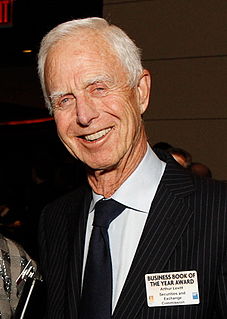A Quote by Tony Fadell
I've learnt something from every failure. The products I helped design at the first two companies I worked for were utter failures. But now I know why.
Related Quotes
On the table, Donald Trump: I'm gonna let Obamacare fail. I am going to let it fail. I am not gonna own this. This is an utter failure, utter disaster. I've tried. I worked with people. Obviously we don't have enough Republicans who want to vote this way. We need more Republicans in 2018, but I'm gonna let it fail 'cause I am not owning this baby. So failure, which is Obamacare, stays in place with all of its problems, expenses, failures versus repealing it. I'm telling you, the most painful choice here is leaving Obamacare in place.
I truly believe that we're about to enter a second golden age of design. The first one was in the '50s and '60s, when designers like Raymond Loewy, Charles Eames, George Nelson and Dieter Rams were shepherds of the brands they were working with. They had influence over the products and how companies communicated and promoted themselves.
In England, all the English car companies were beginning to circle the drain in a series of well-deserved failures and bankruptcies, earned by making lousy products with very poor production at high prices. So, the government, back in the '70s, nationalized all the British car companies. The result was British Leyland, a name that perhaps doesn't resonate much with you.
Failure's relative. I've always felt, even early on, if I lose the freedom to fail, something's not right about that. It's how you treat failure, too. There's something to learn from it. I've had movies that have failed colossally, so you kind of analyze your failures: What kind of failure was it? A failure because it's misunderstood by others? A failure because you misunderstood it yourself?
The reason everybody is so amazed and enamored with me right now is because I have worked every angle, I have worked every formula, I have worked every equation, I have seen every club, I have seen every performance, I have seen every joke, I have studied, I have done my job. That's why I'm good. It's not because I got up one night and decided I wanted to tell some f - -ing jokes.





































